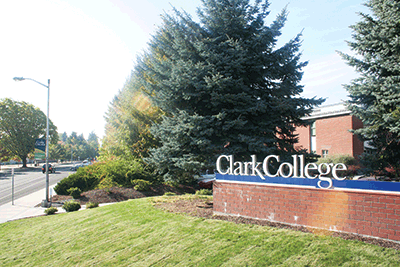The committee also reviewed the business admin courses in the course catalog – deleting classes that were irrelevant to today’s global economy, hadn’t been offered for 10 to 15 years, or that duplicated content covered in other classes. Examples of deleted classes include “Economics of the Pacific Rim,” “Personal Investments” and “Economies of the Americas.”
The business division’s courses have three target audiences, said Mark Maggiora, executive director for Americans Building Community and an advisory committee member. These include young people who are exploring what it will take to be a successful entrepreneur, mid-level managers in existing businesses who are ready to move their organization to the next level but need admin knowledge to be effective, and displaced experienced workers who are pursuing retraining.
“The essential piece is how do you make the offerings of viable interest to small and micro businesses,” said Maggiora. “Our prime objective is to make the offerings easily identifiable as a valuable decision.”
The division is creating new courses that are “more appealing to people and get them better employment,” said Hamideh.
There is a strong demand, he said, for more courses that use the latest technology, such as eCommerce. Other popular topics are sustainability, entrepreneurship and international business.
“The Introduction to International Business (Business 105) is a slam dunk,” said Hamideh. First offered last summer, the college is now offering two sections every term and they are full with wait lists. This class is a favorite for Running Start students because local high schools accept it as a social science.
The division is now in the process of developing a course in eSelling that teaches students how to start an online business, what tools are available and how to market product online.
“Clark’s commitment to international business has been very well received by the business community,” said McDaniel. “They are also focusing on entrepreneurship, which is in keeping with today’s business climate.”
Hamideh said that now the team is “in the process of going through the proper channels to get our degrees/certificates approved.”
That process includes first presenting the modified offerings to the Clark Curriculum Committee (completed), then defending them before the Instructional Planning Team committee (likely complete by summer) and submitting the actual courses to the catalog committee. Hamideh said the changes would be reflected in the Summer 2015 catalog “if everything goes well.”
Streamlining requirements
Another major focus area for the team is to make the entire program very clear-cut. As it stands now, said Hamideh, it is not easy for students – or even academic advisors – to understand the requirements, especially if students switch from one focus area to another (such as from accounting to marketing). This can often lead to the student not being able to leverage already-taken credits, or taking more credits than are covered by financial aid.
“Right now I get a lot of headaches,” said Hamideh. “Students have too many credits, or are not graduating because they took the wrong courses so they need waivers… I have to do a lot of one-on-one with students to get them graduating without compromising the rigor of our degrees.”
To solve these problems, the updated program will offer four one-year certificates with core business courses that can be applied to any of the certificates and to four separate AAS degrees. If a student switches focus, such as getting a certificate in accounting but wants an AAS in marketing, there is no loss of credits.
The new program, said Hamideh, “makes it easier for me, easier for advisors, easier for students. They cannot go wrong, it is very clear-cut.”
Clark College means business
Clark College is in the early stages of developing a Bachelor’s of Applied Science (BAS) in business management – perhaps as early as Fall 2015. According to professor Adnan Hamideh, business division chair at Clark, the college is in the process of applying for approval from the Washington State Board for Community and Technical Colleges. If approved by the Board, the degree then would need to be approved by Clark College’s executive cabinet and board of directors, as well as complete the accreditation process.
“There’s still a lot of data to be collected,” said Hamideh, “but we’ve collected enough to show there is a need and that we’re not conflicting with WSU.”
Hamideh said that while WSU Vancouver’s business management degree is a “straight four-year degree,” Clark’s would be more vocational in nature. Students would finish one of Clark College’s 20-plus two-year degrees, such as fitness trainer. Then they would have the option of attending two additional years to get the BAS. This approach, said Hamideh, would solidly prepare students not only to work in their field, but also start own business or attain management positions. Additionally, he said, the BAS would provide a good foundation for students who wish to pursue a graduate management degree – which could benefit WSU.
“The BAS would be an excellent opportunity to keep Clark College students at Clark College and help them get management positions,” said Jennifer McDaniel, a Washougal city council member who has served on Clark College’s business administration advisory committee for two years.
The credits earned by students pursuing one of Clark’s College’s one-year business admin certificates or a two-year business AAS could be applied toward the BAS credit requirements – further smoothing the way for Clark College’s business students.
{jathumbnail off}



